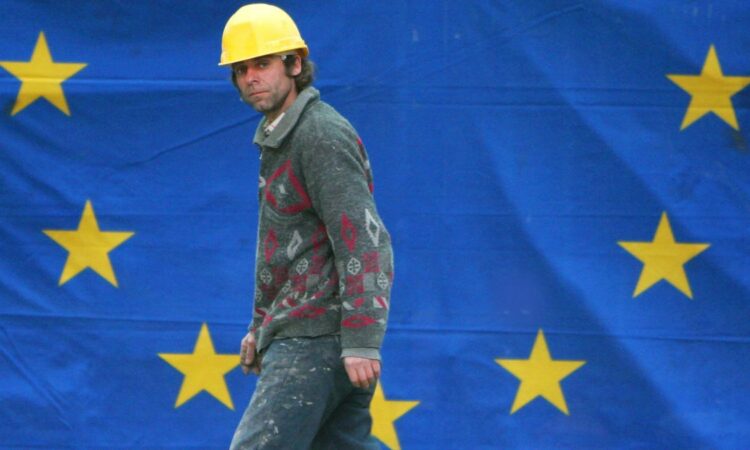
The European Union this week published a raft of proposals aimed at bolstering the bloc’s economic security, including how to better scrutinize inbound investments, monitor risks associated with outbound investments, and regulate exports of sensitive technologies.
While none of the newly released white papers mentions China by name, the spectre of China—Europe’s key trading partner and who Brussels views as a “strategic competitor”—looms large over the question of how to protect against risks while promoting the EU’s competitiveness and openness.
The package of policy proposals comes more than half a year after the EU unveiled its economic security strategy last June. It also follows on the heels of Germany’s first ever China strategy, which outlined a playbook for reducing dependence on Beijing in “critical sectors” while dealing with a China that is at once a “partner, competitor and systemic rival” of Berlin.
One immediate question is whether this week’s proposals from Brussels—if and when they are eventually implemented—are sufficiently ambitious to tackle the challenge of reducing dependencies on China.
“Overly defensive”
The initiatives being considered are largely defensive in nature. For instance, it recommends that all member states have a system in place to screen inbound investments, and to improve coordinate between those screening mechanisms. It also proposes examining how the EU might monitor investments made by European actors in markets outside the bloc, given concerns that those investments could “enhance military and intelligence capacities” of adversarial actors. And there’ a recommendation to revise current export control rules to close loopholes.
Getting less airtime among the proposals are measures to bolster the EU’s own technological and industrial capabilities. After all, the corollary of reducing dependence on China would be to increase “strategic autonomy,” which necessarily involves raise self-sufficiency.
“[T]he European Union’s outlook on economic security remains overly defensive – and does too little to address the broader goal of securing Europe’s techno-industrial position,” notes Tobias Gehrke, senior policy fellow at the European Council on Foreign Relations. “Security costs money – economic security is no different. And the EU’s ability to innovate, produce, and commercialise critical technologies is an essential part of it.”
Defensive maneuvers, offensive investments
Europe’s flagship battery champion, Northvolt, illustrates the need for both defensive and offensive elements in any economic security strategy.
While the Swedish company—which the EU just supported with $986 million in German state aid—is billed as Europe’s big bet to reduce dependence on China for batteries, Northvolt is currently dependent on China for equipment that power its operations, according to industry observers in China and company filing. For example, it buys machinery from the Shenzhen-listed Wuxi Lead Intelligent Equipment (pdf); battery separators from Shenzhen Senior Technology Material; and electrolyte from Shenzhen Capchem Technology (links in Chinese).
While the latest proposals from Brussels do call for more funding to support the development of technologies with dual-use potentials, battery components will likely not fall under that category. Yet made-in-Europe batteries in a factory dependent on Chinese inputs does little to de-risk from China.
Economic security, then, requires making upfront investments in boosting the industrial base. The EU’s white papers this week was thin on that front.






